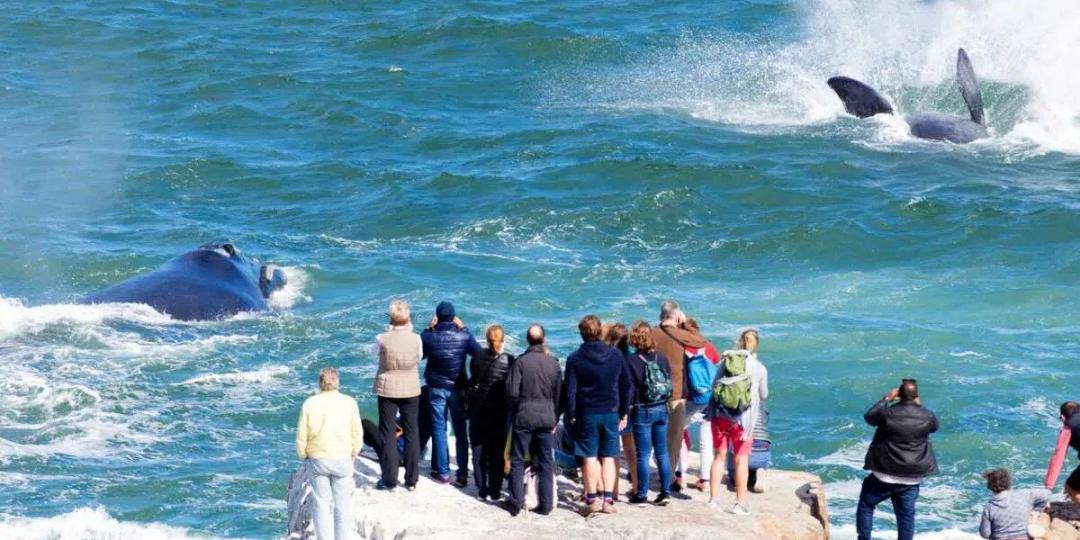The return of tourists to the coastal towns of the Western Cape’s Overstrand region for the annual whale season is giving long-awaited relief to tourism and hospitality providers, and is an encouraging litmus test for South Africa’s first post-COVID peak summer season.
Between June and December, hundreds of calving Southern Right whales visit the shallow Atlantic Ocean waters off small towns such as Hermanus, Kleinmond and Betty’s Bay. At the height of the season in September and October, the region is one of the world’s top whale-watching destinations, and the spectacle is an essential income generator for tourism.
“This is the first whale season without any restrictive regulations in more than two years. Our tourism stakeholders are reliant on an uptake in bookings to ensure survival. The good news is that our tourism and hospitality sector, a commercial driver of the Overstrand, is recovering. There is still a strong domestic focus, but we appreciate hearing foreign accents on the streets as well,” said Dean O’Neill, Municipal Manager for the Overstrand District Municipality, in the whale-watching ‘capital’ of Hermanus.
Tourism to the town has been characterised by last-minute bookings, a noticeable trend worldwide post-COVID.
“Occupancies vary between 55% and 90%, depending on the day of week, with weekends being the busier time. The pick-up is very last minute, which has been the trend over the last few months,” said Ariana van der Merwe, Group Revenue Manager of the Liz McGrath Collection, which owns The Marine hotel on Hermanus’s famed Walker Bay cliff path.
Van der Merwe said the domestic market was still the top driver of bookings at the luxury hotel, followed by the UK, Germany and the US.
Whale numbers increase post-COVID
The first of several annual aerial whale surveys, conducted by the University of Pretoria’s Mammal Research Institute Whale Unit in August, counted 536 whales between the towns of Witsand and Hermanus, a significant increase from the 153 whales counted in 2020 and 288 in 2019.
Whale Unit Manager, Dr Els Vermeulen, said the whale-watching industry still had considerable room for growth that benefited both marine conservation and tourism.
“The whales are of huge importance to our country from a heritage and culture perspective, as well as from a socio-economic perspective. Understanding these whales from a scientific perspective, I strongly believe that working together – research, community, tourism sector – we can provide national and international visitors with an incredible whale-based experience, leading to increased education, awareness, as well as revenues.”
Forward bookings stacked up
Forward bookings along the Overstrand reflect the strongly rebounding demand for Cape Town as a local and international tourist destination.
“All the indicators are pointing to a good recovery this summer and we have been inundated with booking requests. More direct flights to Cape Town, such as the newly introduced twice-weekly Air Belgium flights from Brussels, will no doubt benefit the Overstrand and are more confirmation of a bumper upcoming summer season,” O’Neill pointed out.
“We are well ahead of the same time last year and are excited to welcome more guests to our hotel,” said Van der Merwe.
The Hermanus Whale Festival takes place from September 30 to October 2.
























